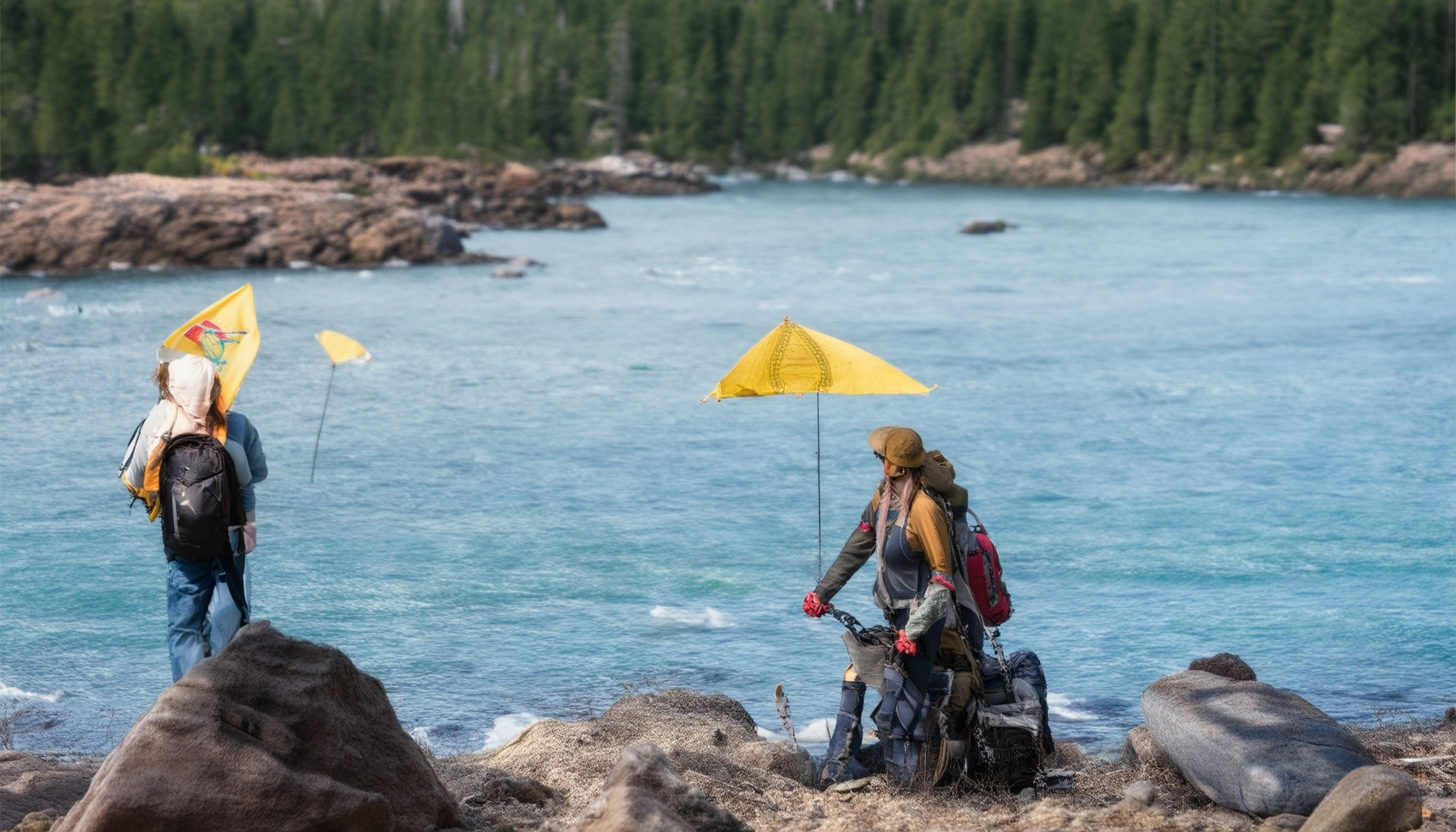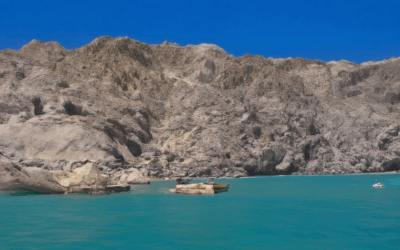Exploring the world responsibly isn’t just about seeing new places—it’s about preserving the destinations we love for future generations and fostering meaningful connections with local cultures. For intrepid travelers seeking to make a positive impact, adopting responsible travel practices is essential. Whether it’s minimizing environmental impact, respecting local customs, or supporting sustainable initiatives, responsible travel offers a transformative way to explore while giving back. From understanding the basics of eco-friendly tourism to staying informed and safe while abroad, this guide equips travelers with actionable strategies to embark on journeys that inspire both personal growth and global stewardship. Discover how small actions can lead to big changes, ensuring that every adventure contributes positively to the world around us.
Key Takeaways
– Plan Thoughtfully: Conduct thorough research, secure reliable accommodations, and learn basic local customs to ensure a smooth and respectful journey.
– Stay Safe: Maintain awareness of your surroundings, store valuables securely, respect local laws, and share your itinerary with someone back home.
– Stay Healthy: Pack necessary medications, stay hydrated, apply sunscreen, and consult a healthcare provider for travel health advice.
– Be Documented: Carry valid identification, obtain travel insurance, and pack all essential items for a worry-free trip.

How to be a responsible traveler
- Dress appropriately: Adapt your clothing to respect local dress codes, especially in religious or conservative areas. Remove your shoes when entering temples or sacred sites.
- Be polite and courteous: Learn basic local language phrases and greet people respectfully. Smile and show appreciation for local customs.
- Minimize waste: Bring reusable items like water bottles and refillable containers. Pack biodegradable products and dispose of waste properly.
- Respect local customs: Observe and respect traditions, rituals, and social norms. Avoid taking photos or videos in sensitive areas without permission.
- Support local economies: Buy souvenirs and products made by local artisans to contribute to the local economy and preserve traditional crafts.
- Conserve natural resources: Avoid overuse of water and energy. Join eco-tourism initiatives to support environmental conservation efforts.
- Cultural sensitivity: Learn about the history and culture of the destination to better understand the local way of life and values.
- Leave no trace: Follow principles of minimal impact. Do not disturb wildlife or remove natural objects from their habitats.
- Stay informed: Check for local laws, regulations, and safety guidelines before traveling. Stay updated on current events and any travel advisories.
For more tips on responsible travel, visit Inxchan’s Responsible Travel Guide or explore resources from Competitor Blog .
What are the three pillars of responsible tourism?
The three core pillars of responsible tourism revolve around sustainable practices that benefit both travelers and host communities. These principles ensure tourism development is environmentally friendly, economically viable, and socially responsible.
- Environmental Sustainability
- Protecting natural habitats and ecosystems.
- Minimizing the negative environmental impact of tourism activities.
- Promoting sustainable transportation options and energy-efficient practices.
- Reducing waste and conserving water resources.
-
Economic Viability
- Ensuring tourism generates positive economic benefits for local communities.
- Supporting local businesses and employment opportunities.
- Promoting fair wages and equitable distribution of tourism revenue.
- Encouraging investment in infrastructure that supports sustainable tourism growth.
-
Social Responsibility
- Respecting and preserving local cultures and traditions.
- Promoting ethical tourism practices that respect human rights.
- Engaging in community development projects and volunteering.
- Building long-term relationships between tourists and host communities.
By focusing on these three pillars, responsible tourism aims to create a win-win situation where travelers enjoy unique experiences while contributing positively to the destinations they visit.

What Are Sustainable Travel’s 8 Best Practices?
Inxchan advocates for responsible and ethical travel practices that minimize environmental impact while benefiting local communities. Here are eight essential sustainable travel practices:
- Plan Ahead: Research destinations and accommodations that align with your values. Look for eco-certified properties and those supporting local economies.
- Reduce Waste: Minimize single-use plastics by bringing reusable items like water bottles, cloth bags, and containers. Dispose of waste responsibly.
- Conserve Water: Opt for accommodations with water-saving systems and avoid overuse of resources. Reuse graywater when possible.
- Minimize Energy Use: Choose eco-friendly accommodations and reduce energy consumption by turning off lights and avoiding unnecessary heating/cooling.
- Support Local Economies: Purchase local goods and services, visit farmers’ markets, and engage in community-based activities to benefit locals.
- Respect Wildlife: Avoid feeding wild animals and stay on marked trails to protect delicate ecosystems and wildlife habitats.
- Stay Involved: Participate in volunteer activities or join guided tours that contribute to conservation efforts and community development.
- Share Knowledge: Use social media responsibly by sharing positive experiences and encouraging others to adopt sustainable practices.
By adopting these practices, travelers can leave a positive impact on the world while creating unforgettable memories.

What Are the Three Most Important Travel Tips Before Traveling?
-
Research and Plan Thoroughly
- Pack light but smart, considering weather conditions and security needs.
- Check visa requirements and entry restrictions well in advance.
- Learn basic phrases in the local language and understand cultural norms.
- Choose the best travel dates based on seasonality and peak times.
-
Stay Safe and Aware
- Be cautious in crowded areas and avoid displaying expensive items publicly.
- Book secure and reputable accommodations to reduce risks.
- Stay informed about local safety concerns and emergency contacts.
- Keep copies of important documents in a safe place during travels.
-
Health and Wellness Preparation
- Pack necessary medications and document any health conditions.
- Stay hydrated and eat healthily to avoid traveler’s diarrhea.
- Apply sunscreen and insect repellent appropriately.
- Consult with a healthcare provider before international trips.
Read more about effective trip planning .
Discover safety tips for international travel .
What is the Most Important Thing People Need When They Travel?
The most important thing people need when they travel is a valid passport or identification document. This serves as the primary proof of identity and citizenship, allowing entry into foreign countries. Ensuring your passport is updated and valid for the duration of your trip is essential to avoid complications.
Additionally, having travel insurance is crucial. It provides coverage for unforeseen circumstances such as medical emergencies, lost luggage, or trip cancellations. This peace of mind allows travelers to focus on enjoying their journey without worrying about potential issues.
Accommodation arrangements are also key. Confirming a reliable place to stay ensures you have a safe and comfortable base during your trip. Whether it’s a hotel, hostel, or rental property, having a secure option is vital for a stress-free experience.
Transportation planning is another essential step. Securing reliable methods like train tickets, bus passes, or car rentals guarantees that you can move around easily and reach your destinations on time.
Money management is equally important. Carrying sufficient local currency, along with accessible ways to obtain more funds through ATMs or secure exchanges, ensures you’re never stranded without resources.
Communication tools like a functional phone with international capabilities or translation apps are indispensable. They help bridge language gaps and keep you connected to essential services during your trip.
Having emergency contact information, such as the nearest embassy or consulate, along with informing someone back home about your itinerary, adds an extra layer of security and peace of mind.
Health and safety preparations, including vaccinations, necessary medications, and basic first aid knowledge, are vital for avoiding or managing health issues that may arise.
Finally, packing all essential items like clothing, toiletries, and travel documents ensures you’re well-prepared for your journey and able to adapt to changing circumstances.

Safety Tips for Travel
Traveling safely requires preparation and awareness. Here are essential tips to ensure a secure and enjoyable journey:
- Research Destinations:** Always check the latest travel advisories and security updates for your destination. Stay informed about any potential risks or restrictions.
- Stay Aware of Surroundings:** Keep an eye on your surroundings at all times. Be cautious in crowded areas and when dealing with unfamiliar environments.
- Secure Belongings:** Don’t leave valuables unattended in public places. Use secure storage options for your personal items, especially in shared accommodations.
- Respect Local Laws:** Familiarize yourself with the local regulations, including dress codes, driving rules, and cultural norms, to avoid unintended consequences.
- Stay Connected:** Inform someone about your itinerary, including departure and return times, to ensure someone knows your schedule in case of emergencies.
- Plan for Emergencies:** Identify the nearest hospitals, police stations, or emergency contacts in case of unexpected situations during your trip.
Conclusion: Prioritizing safety ensures your travel experiences remain positive and stress-free. By staying prepared and mindful, you can navigate new environments confidently and enjoy your adventures responsibly.





0 Comments